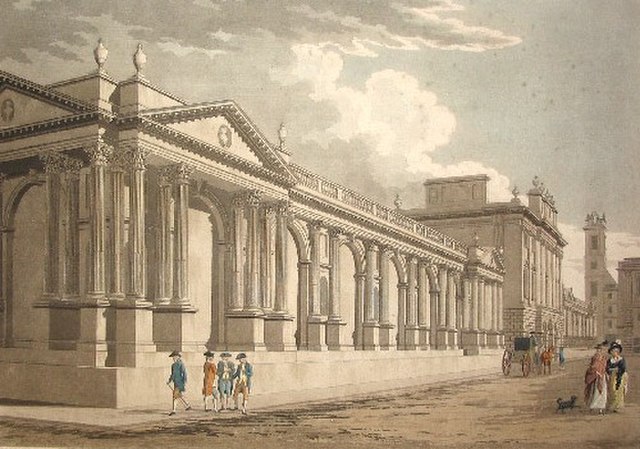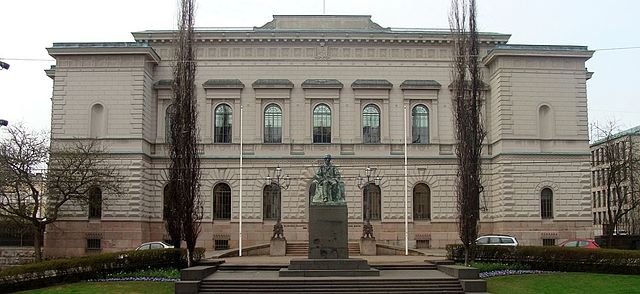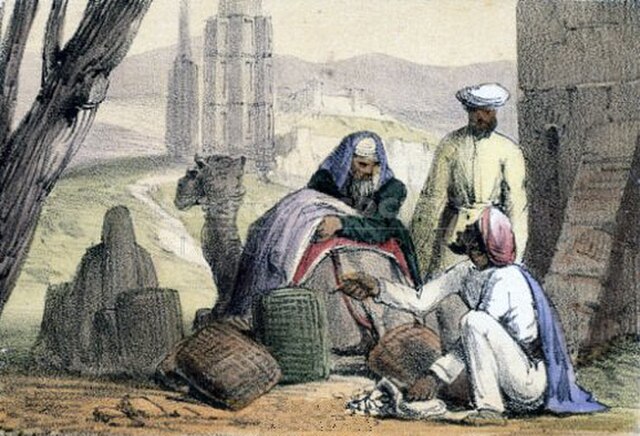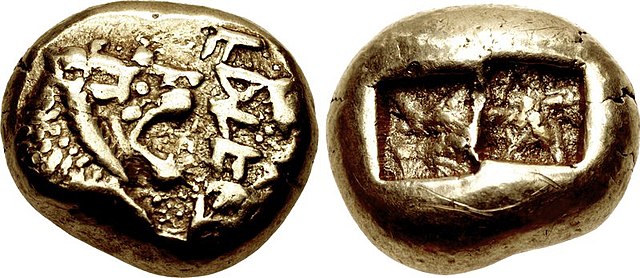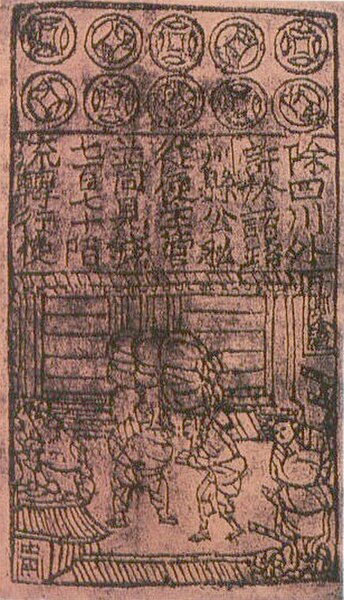A central bank, reserve bank, national bank, or monetary authority is an institution that manages the currency and monetary policy of a country or monetary union. In contrast to a commercial bank, a central bank possesses a monopoly on increasing the monetary base. Many central banks also have supervisory or regulatory powers to ensure the stability of commercial banks in their jurisdiction, to prevent bank runs, and in some cases also to enforce policies on financial consumer protection and against bank fraud, money laundering, or terrorism financing.
Walter Bagehot, influential 19th-century theorist of the economic role of central banks
Interior of the Llotja de Barcelona where the city's Taula de canvi was operated
The Bank of England in 1791
The Bank of Finland in Helsinki
A currency is a standardization of money in any form, in use or circulation as a medium of exchange, for example banknotes and coins. A more general definition is that a currency is a system of money in common use within a specific environment over time, especially for people in a nation state. Under this definition, the British Pound sterling (£), euros (€), Japanese yen (¥), and U.S. dollars (US$) are examples of (government-issued) fiat currencies. Currencies may act as stores of value and be traded between nations in foreign exchange markets, which determine the relative values of the different currencies. Currencies in this sense are either chosen by users or decreed by governments, and each type has limited boundaries of acceptance; i.e., legal tender laws may require a particular unit of account for payments to government agencies.
Cowry shells being used as money by an Arab trader
The world's oldest coin, created in the ancient Kingdom of Lydia
Song dynasty Jiaozi, the world's earliest paper money
A list of exchange rates for various base currencies given by a money changer in Thailand, with the Thailand Baht as the counter (or quote) currency. Note the Korean currency code should be KRW.



